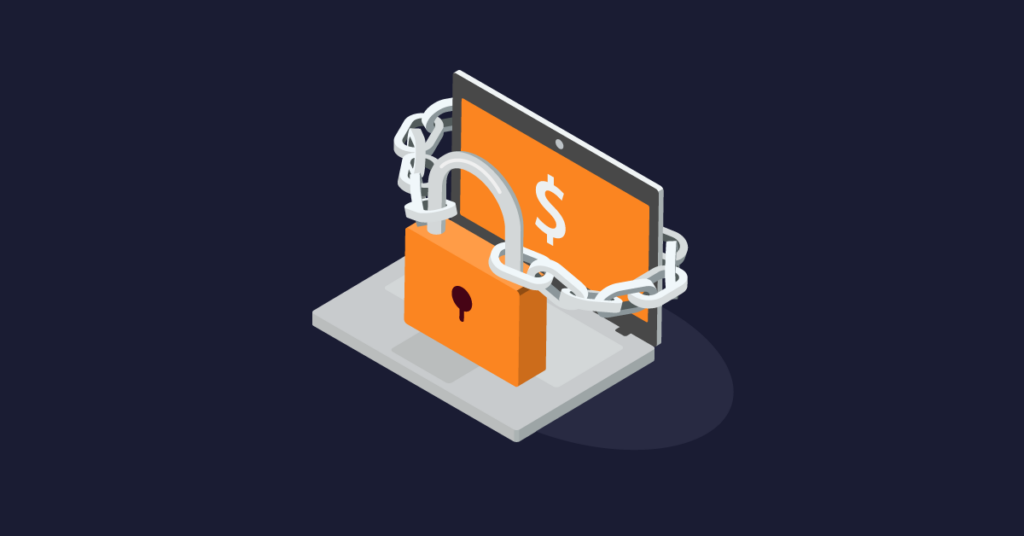Blog
Where Do Cybercriminals Stand on Ransomware Now?
Following the XSS banishment of DarkSide, more cybercriminal forums have followed suit banning DarkSide along with other notorious ransomware collectives. In many cases, these cybercriminal forums issued new forum mandates that outright forbid member discussion and solicitation of ransomware altogether.

Forum Bans Push Ransomware Groups to New Channels
Following the XSS banishment of DarkSide, more cybercriminal forums have followed suit banning DarkSide along with other notorious ransomware collectives. In many cases, these cybercriminal forums issued new forum mandates that outright forbid member discussion and solicitation of ransomware altogether.
As a result, ransomware groups are seeking out new alternatives to cybercriminal forums to drive their recruitment and solicitation efforts of their malicious wares.
XSS Forum: Ransomware Ban (May 13, 2021)
Exploit Forum: Ransomware Ban (May 14, 2021)
RAID Forum: Ransomware Ban (May 14, 2021)
Heated Debates Over Ransomware Ethics Ignite Among Cybercriminals
Ransomware ethics debates are nothing new within cybercriminal circles. However, the recent DarkSide ransomware attack that resulted in a week-long outage of Colonial Pipeline further escalated cybercriminal quarrels and rhetoric to new heights.
Cybercriminal opinions on ransomware operations range widely. Some view ransomware as an unethical form of cybercrime that puts human lives at stake (due to disruption of physical systems, critical infrastructure, and hospitals). In contrast, many others view ransomware as par for the course, similar to many other forms of cyberattacks that achieve similar results. In other debates, the controversy isn’t about the morality of ransomware but the public and law enforcement scrutiny that comes with these attacks.
The Hacker, the Pickpocket, and the Lowly Ransomware Operator
On May 16, 2021, the user “Spinus” petitioned on the Russian-language forum “Antichat” for cybercriminal forums to take concerted action to stymie ransomware groups from leveraging forums as recruitment platforms. Spinus derided ransomware operators, comparing them to common extortioners based on the commonly-accepted hierarchy in traditional Russian criminal subculture known as “Thieves’ World.”
“One of the highest in the hierarchy is the vor [thief] who steals surreptitiously. The victim does not even notice that her wallet is gone. A hacker who uses exploits is stealing information from the victim despite all of their antivirus and protection. Both the pickpocket and the hacker hone their skills over the years, which is why they are considered to be the highest caste. ”
Since the vor and the pickpocket “hone their skill” over several years, they’re considered in the highest tier. After that comes the fraudster and the robber, with the extortionist at the very bottom of the tier system. Spinus goes on to further debase extortionists and cheapen their technical acumen (or lack thereof, according to Spinus), claiming they’re not well-respected in the criminal world and their techniques basic:
“And therefore, this is considered, and in my view, correctly, a grave crime. (…) Ransomware operators belong in this category, or even terrorism (‘I will blow up everything if I don’t get the money’). There is no need for them to know anything about computers and networks to mess up a victim, and they get pretty good money for it. Therefore, they are not respected in the hacking community.”
Upholding “Honor Among Thieves” Key to Forum Success
While the “Thieves’ World” has largely disappeared in recent decades, some remnants live on through Russian criminals—both online and offline—who carry on the values and terminology it espoused. Importantly, these value structures, like a cybercriminal caste system, perpetuate notions of “honor among thieves” and help those navigate an otherwise opaque and cutthroat cybercriminal underground.
Forum Admins Play Larger Role as Arbiters of Cybercriminal Values
Upholding these cybercriminal values is also why we see top-tier marketplaces and communities implement a range of tools and techniques to strictly enforce acceptable forum behavior (e.g., security deposits, user credibility ratings, and strict conflict resolution formats). In doing so, they instill a level of trust that allows “respectable” cybercriminals to operate and conduct their illicit business more openly with one another and to their own mutual benefit.
In this sense, forum administrators play a key role in upholding longstanding cybercriminal values. They also have the most to lose should forum etiquette devolve and trust deteriorate.
Banning Ransomware Groups Reasserts Forum Trust
While forum admins may position their ransomware group bans as ethics-based decisions, any sense of moral obligations were far from primary, or even tertiary, factors in their scenario analyses. Far more crucially for forum admins, the ransomware bans helped assuage their many other non-ransomware members who grew increasingly skittish following the public scrutiny and feared backlash from the DarkSide ransomware attacks. Whether or not the bans ultimately alleviate the increased scrutiny is yet to be seen, but at a minimum, it appears to have quelled member base unrest for now—enabling members to resume their normal illicit activities.
The Flashpoint Ransomware Dashboard

Ransomware Remains Alive and Well
As seen in the Flashpoint Ransomware Dashboard above, despite recent ransomware controversies and heated debates in cybercriminal circles, ransomware attacks continue to strike organizations worldwide. Major ransomware groups—including REvil, LockBit, Avaddon, and Conti—are largely operating in private mode, continuing to initiate new attacks but in more subdued manners and against less high-profile targets.
Prepare for Ransomware with Flashpoint
Request a demo today and see firsthand how Flashpoint’s Threat Response and Readiness offerings ensure your entire team is prepped and able to respond to any ransomware attack. When equipped with Flashpoint’s dedicated ransomware dashboards, you move ahead of ransomware and the cybercriminal groups who deploy it.




